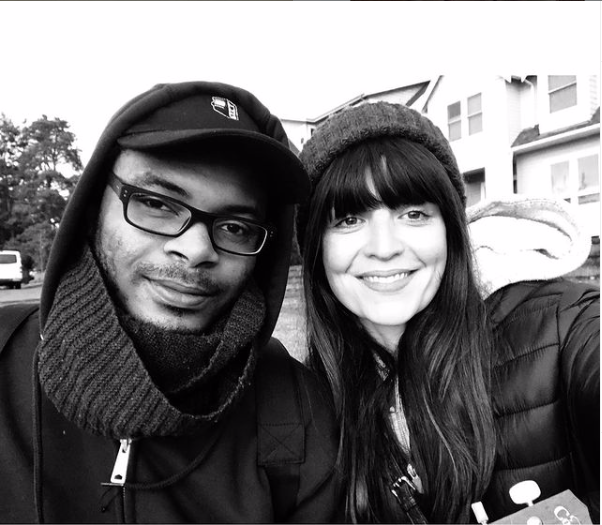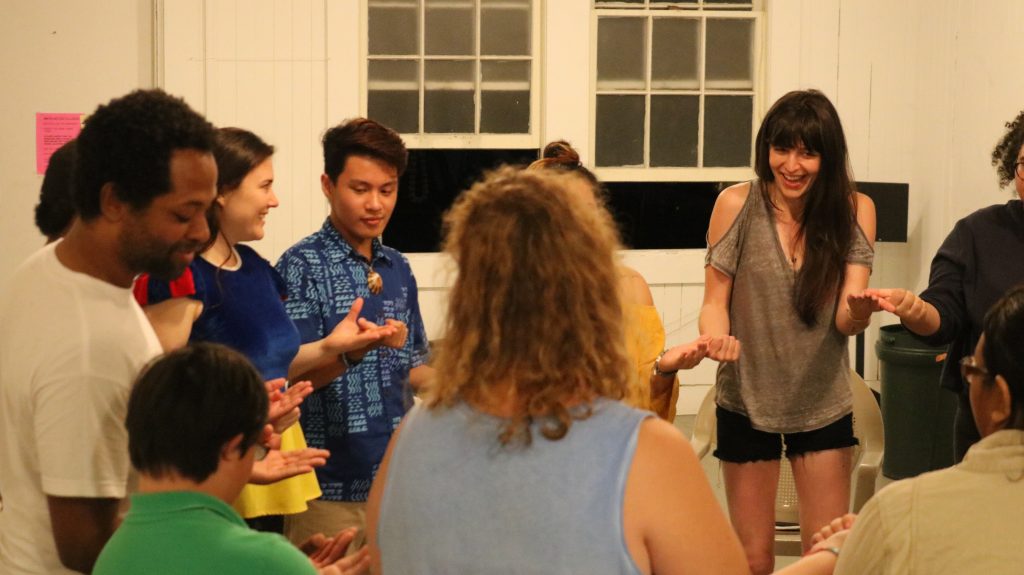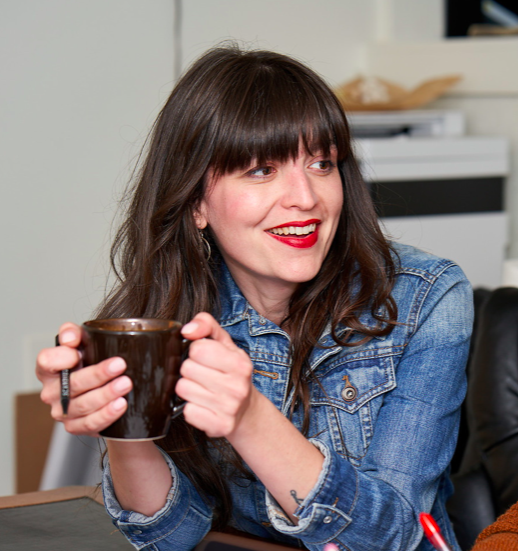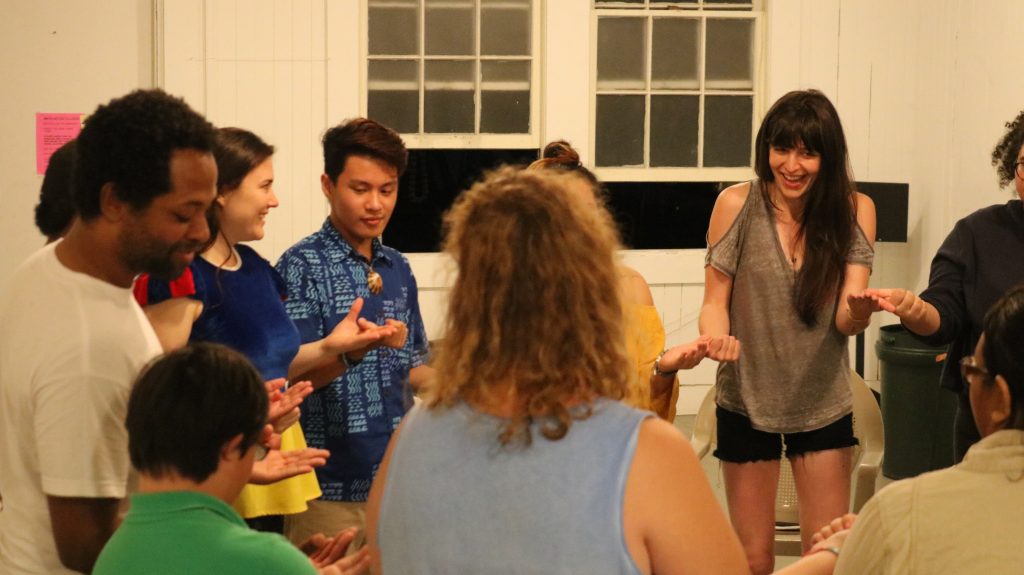Lily Raabe, Olympia Family Theater’s new artistic director, loves fantasy, adventure — and community. The company plans to resume producing shows in the spring; meanwhile, Raabe is focused on connecting with and learning about the people who surround and support the theater. She’ll host a series of online and in-person meetings beginning Nov. 11.

The meetings — open to all who are interested in shaping the theater’s future — are part of the process of creating a three-year plan for the 15-year-old theater. The company was co-founded by Jen Ryle, who just stepped down as artistic director, and Samantha Chandler, president of its board.
“As soon as I met Jen and Samantha, it was really clear that they have built a loving, bright, fantastic community at OFT,” said Raabe, who just moved from Seattle to Olympia with partner Alvin Thomas and Australian shepherds Aja and Cash. “There are so many people who love the company and are part of the company.”
Her priority right now is to build on that community — which was a big part of what drew her to the job, along with the opportunity to focus on theater that educates people and sparks difficult conversations. “I’m interested in exploring how more and more people can be a part of OFT’s story,” she told OLY ARTS. “I don’t believe in replacing anyone’s seat at the table. I believe that we at the theater can build a bigger table. We have a scene shop; we have hammers; we have wood. The table just needs to keep expanding so that more and more people can be part of the theater’s future.”

She hopes to make the theater, already known for its inclusive casting, even more inclusive and accessible for audiences as well as artists and actors. “Access to art is a human right,” she said. “That is something I want to center at OFT. When you center the idea that accessing art is an actual right, that starts to intersect with racial equity and social equity. Who gets to have a role on the stage? Who gets to take a class?”
Raabe’s past experience includes developing the Aloha Art Festival in Hilo, Hawaii; working as development director for Seattle’s Intiman Theater; and directing the Northwest Arts Streaming Hub, which took performances online when the pandemic closed theaters. She has made theater with groups ranging from children to incarcerated men and has extensive experience with grant writing, a skill she’s already putting to use for OFT.

That breadth of experience made Raabe a standout candidate, Ryle said. “She has strengths where we were looking for strengths,” Ryle told OLY ARTS. “She has experience doing things that I didn’t have experience with, and she will bring a fresh energy and more potential for growth moving forward.”
Raabe said she’s proudest of her work making original theater with men incarcerated at Monroe Correctional Complex. “Their last production, Tomorrow Is a Dream for the Hopeless, focused on American violence,” she said. “I’ll always remember being taught the lesson that physical violence is most often a manifestation of emotional or spiritual violence, and that we have to solve these less-visible issues if we want to get to the root of many issues facing our society today.”
Though she’s serious about the power of theater to change lives and change minds, Raabe also appreciates a good story — and a story with a strong female lead. She hopes to have the chance to direct shows adapted from such classic books as Maurice Sendak’s Where the Wild Things Are and Richard Adams’ Watership Down, and she’s also drawn to science fiction, magical realism, fairy tales, folk tales and mythology. “I love adventures,” she said.

She’s inspired, too, by theater that finds creative ways to engage audiences. Asked for a few favorite productions, she mentioned a version of A Midsummer Night’s Dream that mixed physical acting with found-object puppetry, and the National Theater of Scotland’s The Strange Undoing of Prudencia Hart, in which an academic studying ballads finds herself living inside one. “They transformed a simple room at The Old Rainier Brewery into a magical experience that didn’t rely on costly technical elements to transport the audience into the world of the story,” she said.

